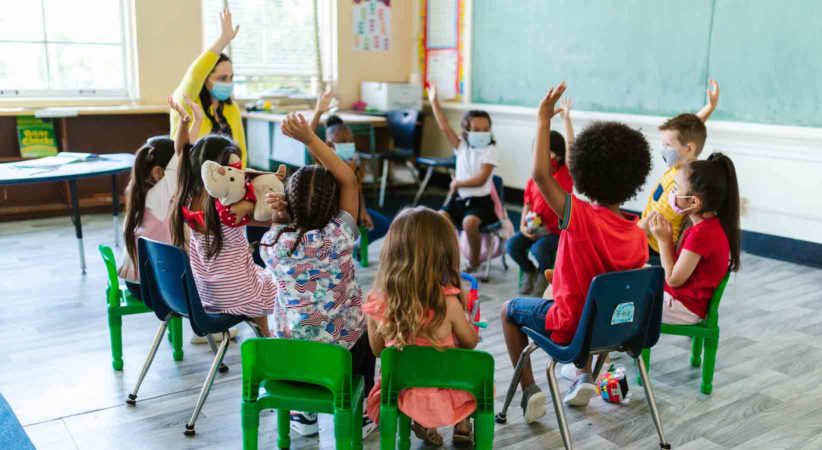
Social-Emotional Learning Strategies
Social-emotional learning is, “the process through which all young people and adults acquire and apply the knowledge, skills, and attitudes to develop healthy identities, manage emotions and achieve personal and collective goals, feel and show empathy for others, establish and maintain supportive relationships, and make responsible and caring decisions.” – CASEL
The term social-emotional learning (SEL) was created in 1994 from a meeting between researchers, educators and child advocates. Both the term and the resulting organization — Collaborative for Academic, Social, and Emotional Learning (CASEL) — grew out of the need to form a cohesive approach to helping children develop and use social and emotional skills. CASEL has developed a framework that includes five core competencies and four key settings for SEL. Watch the video below for more information on the CASEL SEL framework.
This collaborative approach spans the child’s environment from home to school to community and leads to positive student outcomes. Having strong social-emotional skills, such as problem-solving and communicating clearly, has also been identified as important to employers. Studies have shown that starting SEL early has many benefits to children that continue into adulthood. There is a lot of crossover between family literacy instruction and SEL approaches, making the incorporation of SEL relatively straightforward and complementary.
Below we’ve gathered resources for you to explore to help you incorporate social-emotional learning strategies in your teaching.
Online Resources
- 25 Simple Ways to Integrate Social-Emotional Learning Throughout the Day
- Combining Social-Emotional Learning and Literacy in Early Childhood Classrooms
- Five Simple Techniques to Incorporate Social and Emotional Learning
- A Perfect Match: The Power of Blending Literacy and Social and Emotional Learning
- Promoting Young Children’s Social and Emotional Health
- Social and Emotional Learning: Strategies for Parents
Decoda Literacy Library Resources
- Calm, alert, and learning : classroom strategies for self-regulation
- Encouragement in the classroom : how do I help students stay positive and focused?
- Family literacy kit : Calm
- Family literacy kit : Feelings
- Roots of empathy : changing the world, child by child
- Socially strong, emotionally secure : 50 activities to promote resilience in young children
Related Blog Posts
Understanding Dyslexia
Newly released, the MindShift Guide to Understanding Dyslexia is designed to be an introduction to dyslexia. It describes: How to recognize dyslexia in children, including multilingual English Language Learners Teaching …
Indigenous Cultural Competency for Early Childhood Education
In honour of Orange Shirt Day and National Day for Truth and Reconciliation on September 30, we are reposting this blog from February 2018. It has been updated to include …
Babies Need to Hear Talk – Video Collection
Even before they can talk, babies need to hear talk. Talking to babies has an impact on their language development. Have you ever talked to a baby in a …
